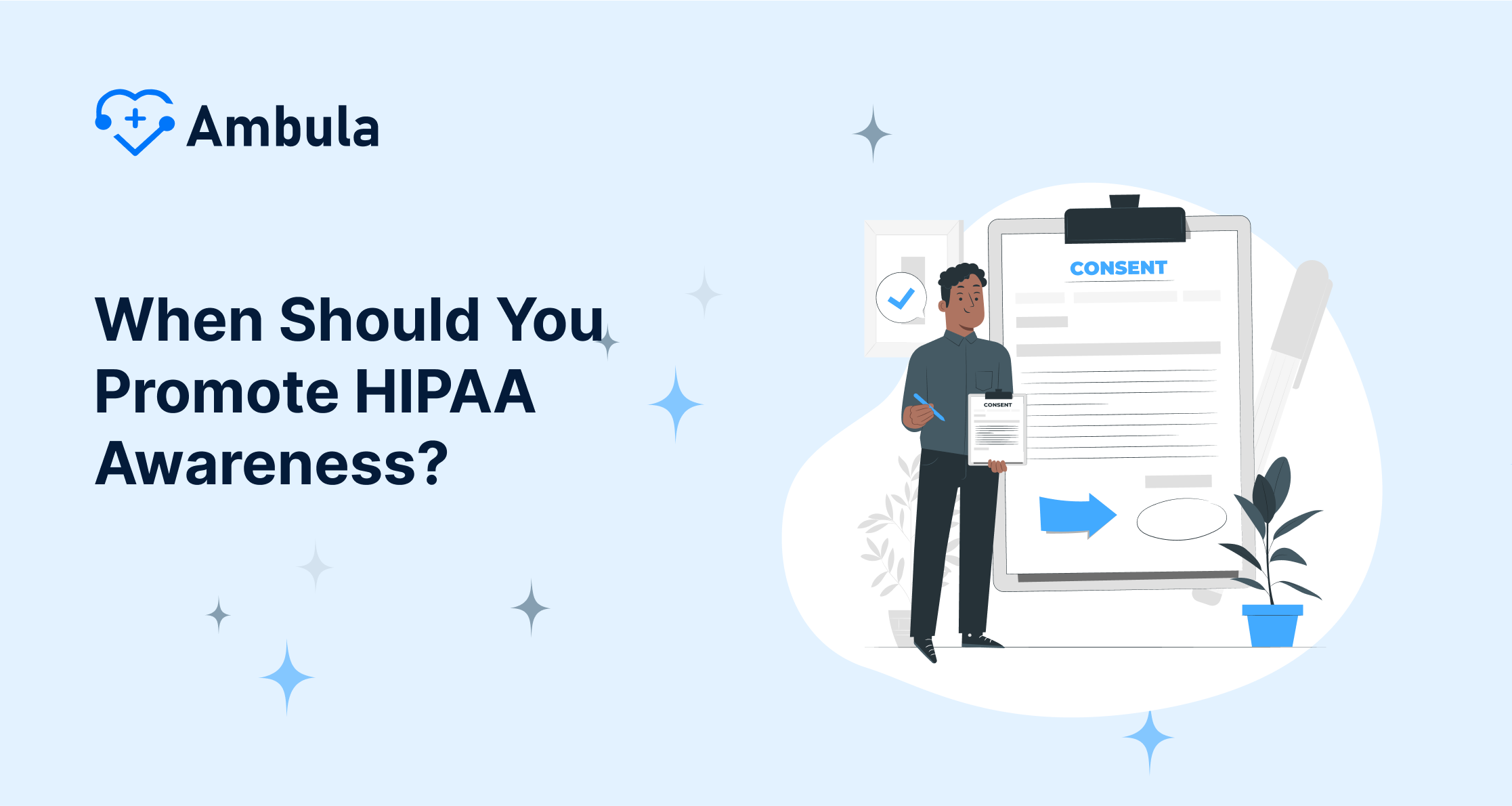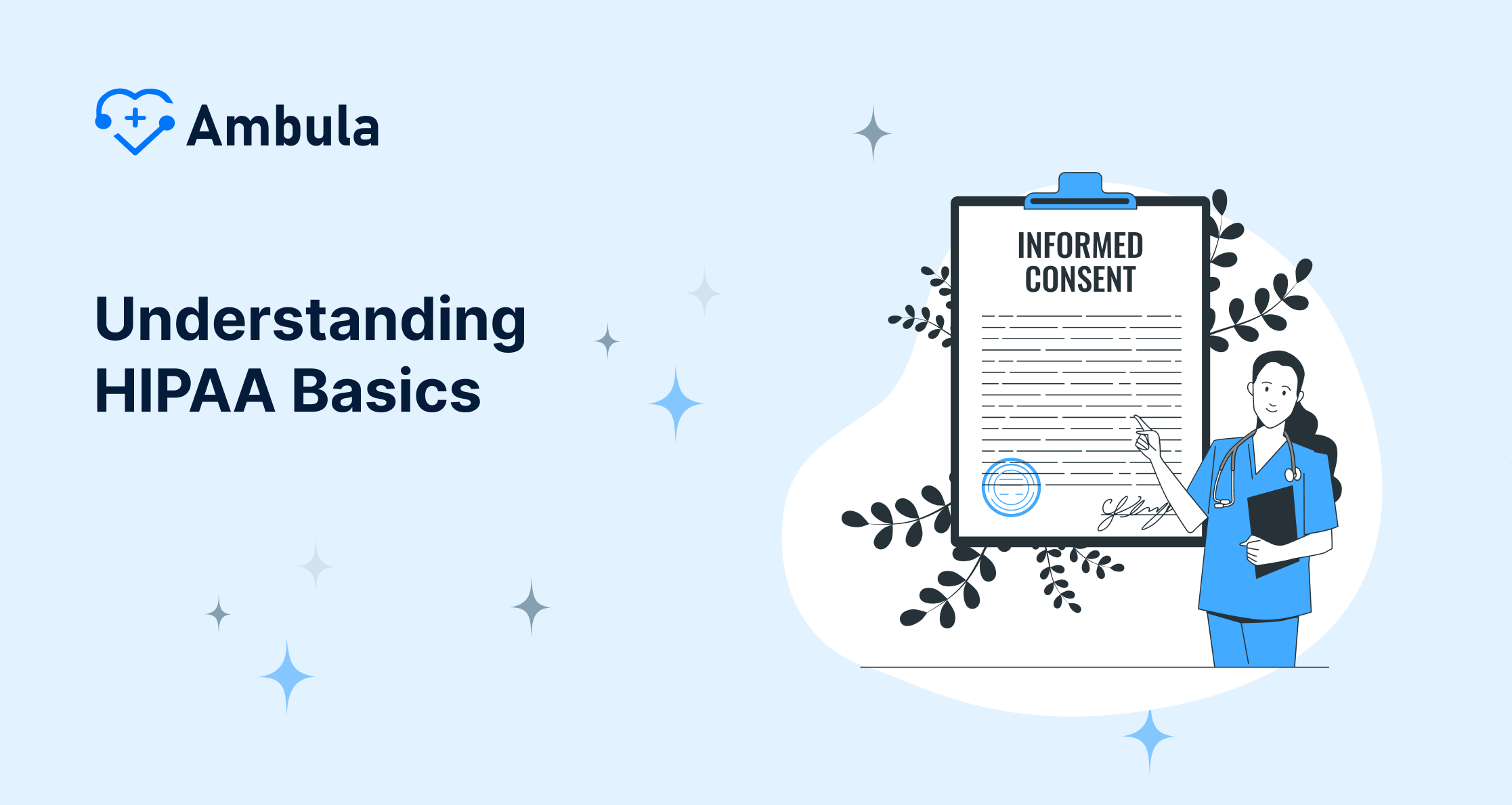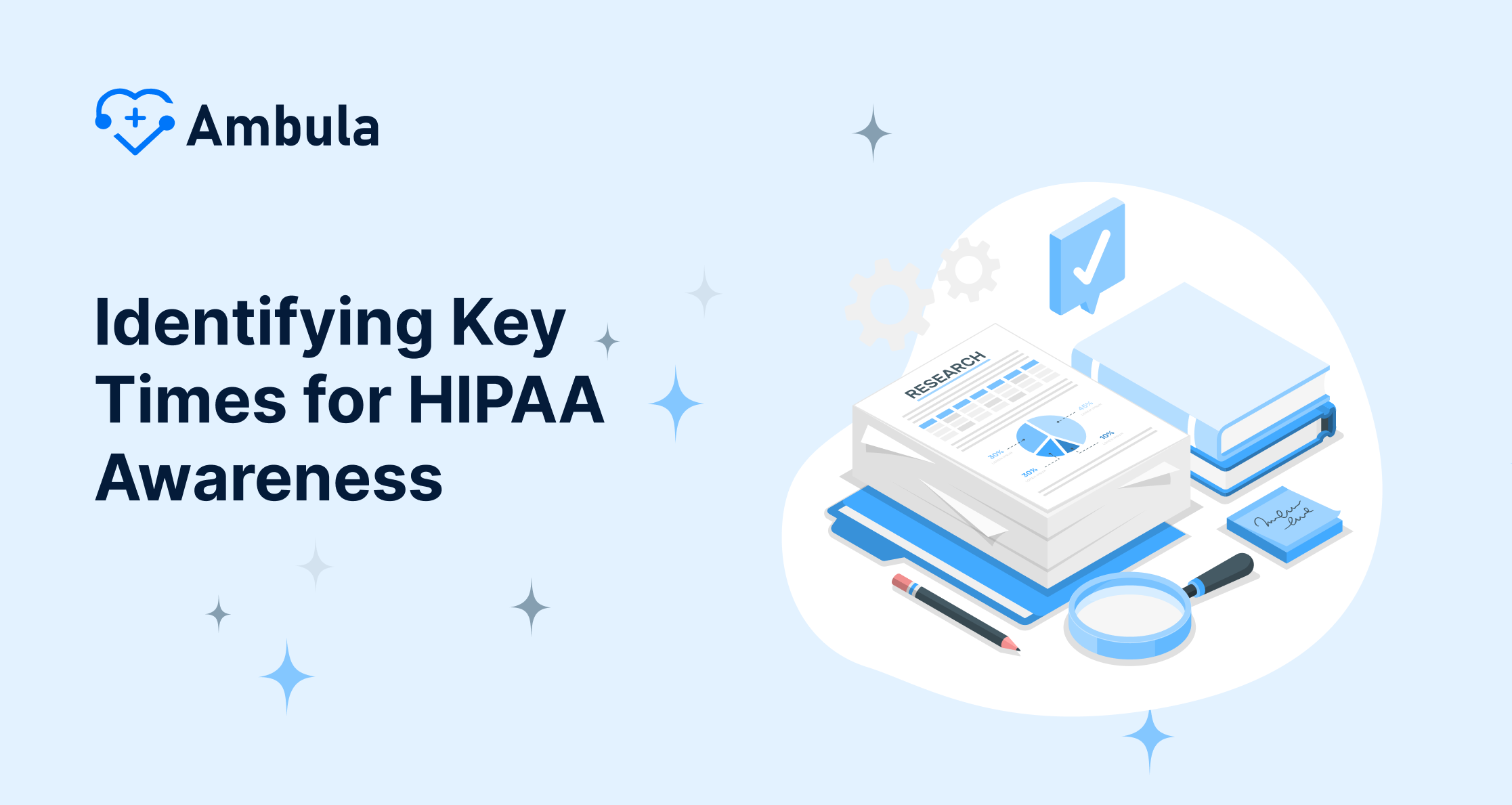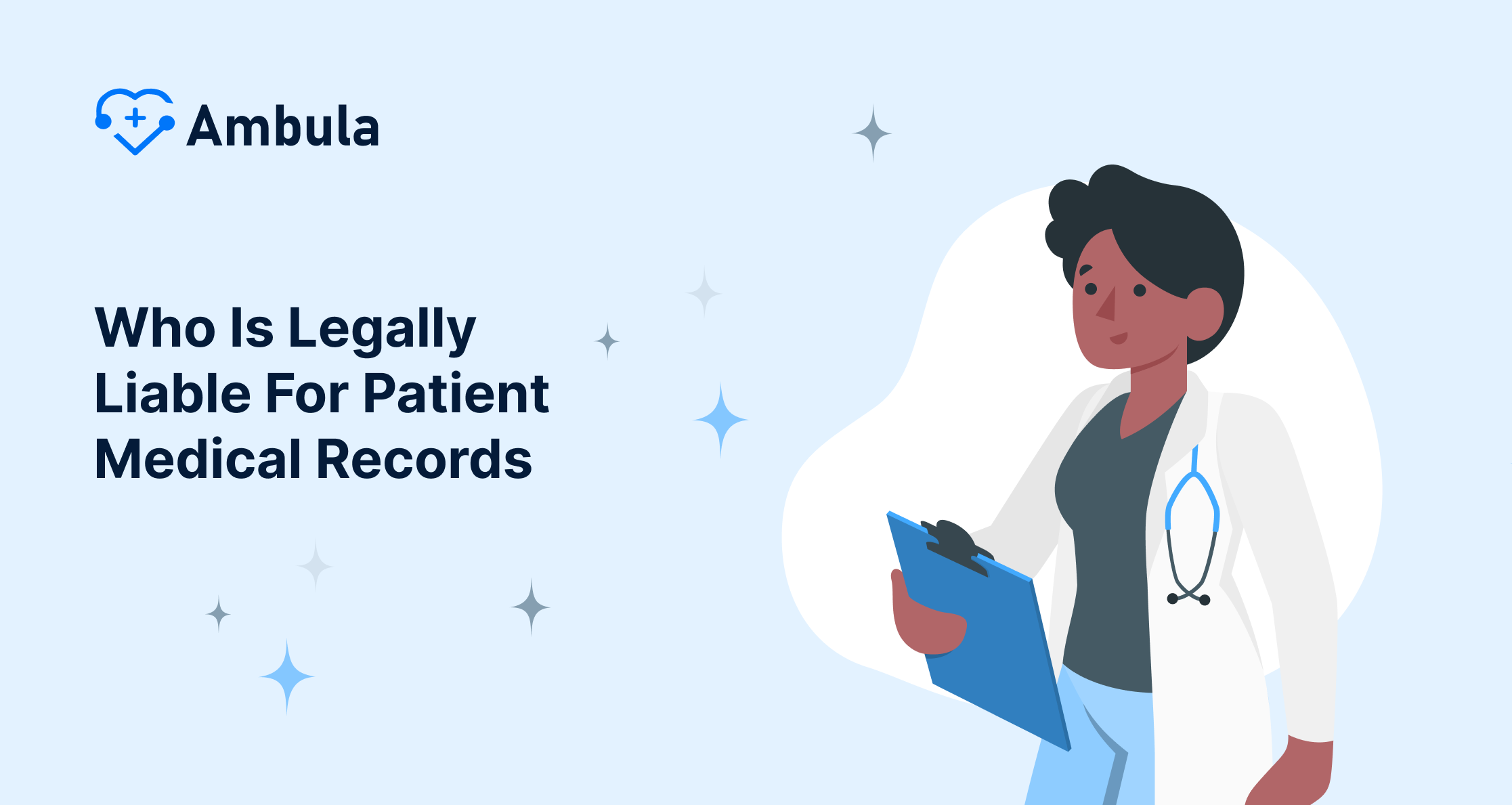
HIPAA awareness forms the cornerstone of safeguarding sensitive data and ensuring compliance with federal regulations. Healthcare providers, health plans, and business associates must understand when and how to promote HIPAA awareness to maintain the highest standards of patient confidentiality and data security.
This article explores the critical aspects of HIPAA awareness promotion. It delves into the basics of HIPAA, identifies key times for raising awareness, and discusses effective methods to enhance understanding among staff. Additionally, it examines ways to measure the impact of HIPAA awareness initiatives, providing valuable insights for healthcare organizations to strengthen their compliance efforts and protect patient information effectively.
Understanding HIPAA Basics
What is HIPAA?
The Health Insurance Portability and Accountability Act (HIPAA) is a crucial piece of legislation that regulates the privacy and security of patients’ health information. Enacted in 1996, HIPAA initially aimed to address insurance coverage issues for individuals between jobs and those with pre-existing conditions . However, its scope expanded to include the protection of sensitive health data and the standardization of healthcare transactions .
HIPAA compliance refers to adhering to the guidelines and standards outlined by the Act to protect the privacy and security of Protected Health Information (PHI). The U.S. Department of Health and Human Services (HHS) developed regulations to fulfill HIPAA’s requirements, resulting in the creation of the HIPAA Privacy Rule and the HIPAA Security Rule .
Key components of HIPAA
HIPAA encompasses several key components that form the foundation of its regulatory framework:
- Privacy Rule: This rule establishes national standards for the protection of individuals’ medical records and other personal health information .
- Security Rule: It sets specific standards for safeguarding electronic Protected Health Information (ePHI) .
- Breach Notification Rule: This component requires covered entities to notify affected individuals, HHS, and in some cases, the media when a breach of unsecured PHI occurs.
- Enforcement Rule: This rule outlines the procedures for enforcing HIPAA regulations and imposing penalties for non-compliance 1.
Importance of HIPAA compliance
HIPAA compliance is crucial for several reasons:
- Data Protection: It helps prevent data breaches and unauthorized access to PHI, reducing the risk of reputational damage, legal consequences, and financial loss.
- Patient Trust: HIPAA compliance enhances patients’ trust and confidence in the healthcare system, encouraging them to seek needed medical treatment and share essential details during doctor-patient interactions.
- Standardization: HIPAA has helped streamline administrative healthcare functions and improve efficiency in the healthcare industry by establishing common standards for recording health data and conducting electronic transactions .
- Patient Rights: HIPAA gives individuals increased rights and control over their health information, allowing them to take a more active role in their healthcare .
Identifying Key Times for HIPAA Awareness
New employee onboarding
HIPAA training is essential for new employees to ensure compliance and protect sensitive patient information. The Privacy Rule requires training to be provided “within a reasonable period of time after a person joins the covered entity’s workforce”. This training equips employees to handle protected health information (PHI) appropriately and understand their responsibilities under HIPAA . New employees must learn about HIPAA’s purpose, the definition of PHI, and its allowable uses . Organizations should integrate HIPAA training into their onboarding process, tailoring content to specific roles and responsibilities .
Annual refresher training
While HIPAA does not explicitly mandate annual training, it is considered industry best practice to provide refresher training once per year . The Security Rule requires “periodic” security awareness training, which is generally interpreted to mean at least every two years. However, annual training helps reinforce employees’ understanding of HIPAA regulations and ensures they stay up-to-date with any changes or updates. Regular training also helps reduce the risk of HIPAA violations and demonstrates an organization’s commitment to compliance .
After policy updates
HIPAA training must be provided whenever there is a material change to policies or procedures that affect an employee’s functions 1. This includes updates to HIPAA Rules, internal policies related to PHI, or the implementation of new technology . By providing training after policy updates, organizations ensure that their workforce remains compliant with the latest regulations and internal procedures .
Following security incidents
Retraining on HIPAA Rules is recommended following any privacy or security breach . If an individual has violated HIPAA Rules, and the violation does not warrant termination, they must be retrained on HIPAA requirements . Additionally, it may be appropriate to provide retraining to others in the organization to prevent similar incidents . The Security Incident Procedures standard requires covered entities to implement policies and procedures to address security incidents, including identifying, responding to, and documenting such incidents .
Effective Methods for Promoting HIPAA Awareness
Interactive training sessions
Interactive training sessions are essential for promoting HIPAA awareness effectively. These sessions should be designed to be engaging and memorable, incorporating multimedia presentations and role-playing activities 1. By keeping training sessions short and focused, typically lasting no more than one hour, organizations can maintain employee attention and improve knowledge retention 1. It’s crucial to include senior management in these training sessions, as their involvement demonstrates the importance of HIPAA compliance throughout the organization 1.
Regular email reminders
Email communication plays a significant role in HIPAA compliance. Regular email reminders can reinforce key HIPAA concepts and best practices. However, it’s important to note that while the Privacy Rule allows for electronic communication with patients, healthcare providers must apply reasonable safeguards . This includes checking email addresses for accuracy and limiting the amount of sensitive information shared through unencrypted emails . Organizations should also train employees on HIPAA email policies to ensure compliance with the Privacy Rule and the Minimum Necessary Rule .
Posters and visual aids
Posters and visual aids can be effective tools for promoting HIPAA awareness. The World Health Organization recommends using posters as reminders in the workplace and as training tools for healthcare workers. Visual tools can optimize and accelerate comprehension processes, making them valuable for educating staff on HIPAA requirements. Posters are particularly useful for reaching a wide audience over an extended period, provided they are placed in protected areas .
Quizzes and assessments
Incorporating quizzes and assessments into HIPAA training programs helps evaluate employees’ understanding of the material and identify areas that require additional focus. Many HIPAA training software solutions include interactive modules, quizzes, and progress tracking features to enhance the learning experience. These knowledge checks are essential for ensuring employees comprehend the content and for identifying areas where additional training may be needed 4. Regular assessments also help organizations maintain documentation of training completion, which is crucial for demonstrating compliance during audits or investigations.
Measuring the Impact of HIPAA Awareness Initiatives
Tracking compliance metrics
Organizations can assess the effectiveness of their HIPAA awareness initiatives by monitoring key compliance metrics. These metrics include the number of reported security incidents, unauthorized access attempts, and data breaches. A study revealed that 5,887 large healthcare data breaches were reported from October 2009 to December 2023 1. By tracking these figures, healthcare providers can identify areas for improvement and gage the success of their awareness programs.
Conducting surveys
Patient and health plan member surveys serve as valuable tools for understanding healthcare interactions and measuring HIPAA awareness impact. A scoping review on patient satisfaction highlights that measuring healthcare quality and satisfaction is crucial for resource management and tailoring services to user preferences . HIPAA-compliant survey tools ensure that sensitive data is handled securely, incorporating encryption and strict access controls to prevent unauthorized disclosure.
Analyzing incident reports
Incident reports provide essential insights into unexpected occurrences, such as medication errors or patient falls. These reports help identify safety improvement areas and educate staff on avoiding similar events. Organizations should view these reports through a culture of safety lens, as defined by The Joint Commission . Analyzing incident reports can reveal patterns and trends, allowing healthcare providers to assess the effectiveness of their HIPAA awareness training and make necessary adjustments to prevent future breaches.
Conclusion
Promoting HIPAA awareness plays a crucial role in safeguarding patient information and maintaining compliance in healthcare settings. By pinpointing key moments for training, such as new employee onboarding and after policy updates, organizations can ensure their staff stays up-to-date with HIPAA requirements. Using a mix of interactive sessions, visual aids, and regular reminders helps to reinforce the importance of protecting sensitive health data and keeping it at the forefront of employees’ minds.
To gage the success of HIPAA awareness efforts, healthcare providers should keep an eye on compliance metrics, gather feedback through surveys, and take a close look at incident reports. This approach allows organizations to spot areas that need improvement and tweak their training programs accordingly. By making HIPAA awareness a top priority and continuously fine-tuning their strategies, healthcare entities can build a culture of compliance that protects patient privacy and boosts trust in the healthcare system.
FAQs
- When is it necessary to focus on HIPAA compliance within an organization?
- HIPAA awareness should be a constant priority for any organization that qualifies as a covered entity or a business associate under HIPAA regulations. Maintaining ongoing awareness is crucial for integrating HIPAA compliance into the workplace culture.
- How often should HIPAA training be conducted?
- While HIPAA regulations do not set a specific interval for training frequency, it is generally recommended that healthcare employees undergo annual refresher training. This helps to ensure they remain compliant and are up-to-date with the procedures and policies regarding the management of protected health information (PHI).
- What does HIPAA awareness entail?
- HIPAA awareness training is designed to educate employees of covered entities and business associates about their legal responsibilities. It focuses on the proper handling, usage, and protection of protected health information (PHI) to comply with HIPAA regulations.
- Who is required to adhere to HIPAA regulations?
- HIPAA regulations must be followed by “covered entities,” which include health plans like health insurance companies, HMOs, company health plans, and certain government programs that pay for healthcare such as Medicare and Medicaid.






